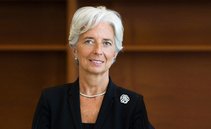Eurozone inflation rose unexpectedly in July, but the European Central Bank did not budge.

Inflation in the Eurozone unexpectedly edged up in July, although not enough to cause panic within the European Central Bank’s ranks. The reading came one day after Eurostat released GDP growth data for the second quarter of 2024.
Headline inflation grew 2.6% year-on-year, edging up from 2.5% in June. Economists polled by Reuters expected inflation to remain stable at the previous level.
Core inflation, a measure that excludes volatile food and fuel prices, remained stable at 2.9%, missing economists’ forecast of a drop to 2.8%.
Germany and France, the EU’s largest economies, both saw a 0.1% spike in inflation to 2.6% in July. In more positive news, services inflation dropped to 4% from 4.1%. Services inflation is the ECB’s preferred gauge to evaluate the full impact of prices on the general population.
The Eurozone GDP growth seemed to reflect the growth in inflation. The economy in the 20 countries using the euro expanded by 0.3% in the second quarter despite Germany’s GDP contracting by 0.1%. That was also above economists’ expectations of a 0.1% GDP jump.
leggi anche
In European banking, Piigs can still fly

The ECB doesn’t worry about inflation
A growing economy and rising inflation are usually signs that monetary policy is too loose. The ECB was the biggest central bank to cut interest rates so far, bringing them down from a record-high 4% last June.
The decision to cut rates was not unanimous in the ECB committee, with some asking to wait for more economic data before committing.
However, some analysts argue the latest inflation data doesn’t ruin the ECB’s plans. “While the hotter-than-expected headline inflation could be seen as a setback for the ECB, we don’t think it necessarily changes the narrative,” Julien Lafargue, chief market strategist at Barclays Private Bank, told CNBC. “Indeed, economic growth remains subdued — including the Q2 GDP print — which should help inflation remain on a downtrend.”
June’s cut was a tentative attempt to watch its effects on the European economy, especially as growth remains practically stagnant across the bloc.
The ECB’s closest peer, the US Federal Reserve, is following the opposite strategy. The Fed waited to gather as much data as possible on inflation and economic growth, finally drawing a precise path to cut interest rates. Markets expect the Fed to implement the first rate cut in September with 100% certainty.
On the other hand, the European Central Bank now knows what effect a rate cut will have on its economy. Analysts expect the ECB committee to wait at least until next quarter for the following rate cut.




